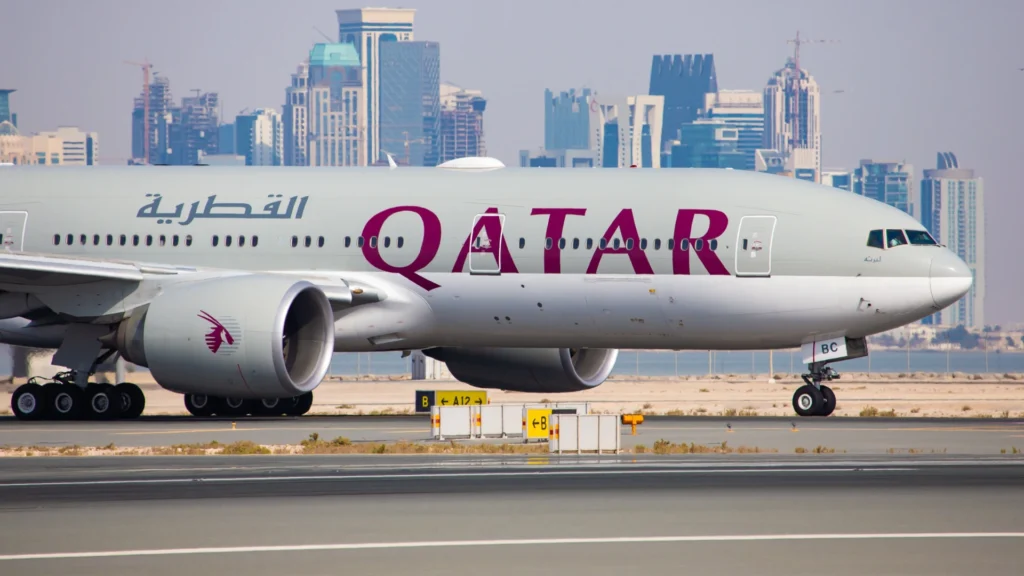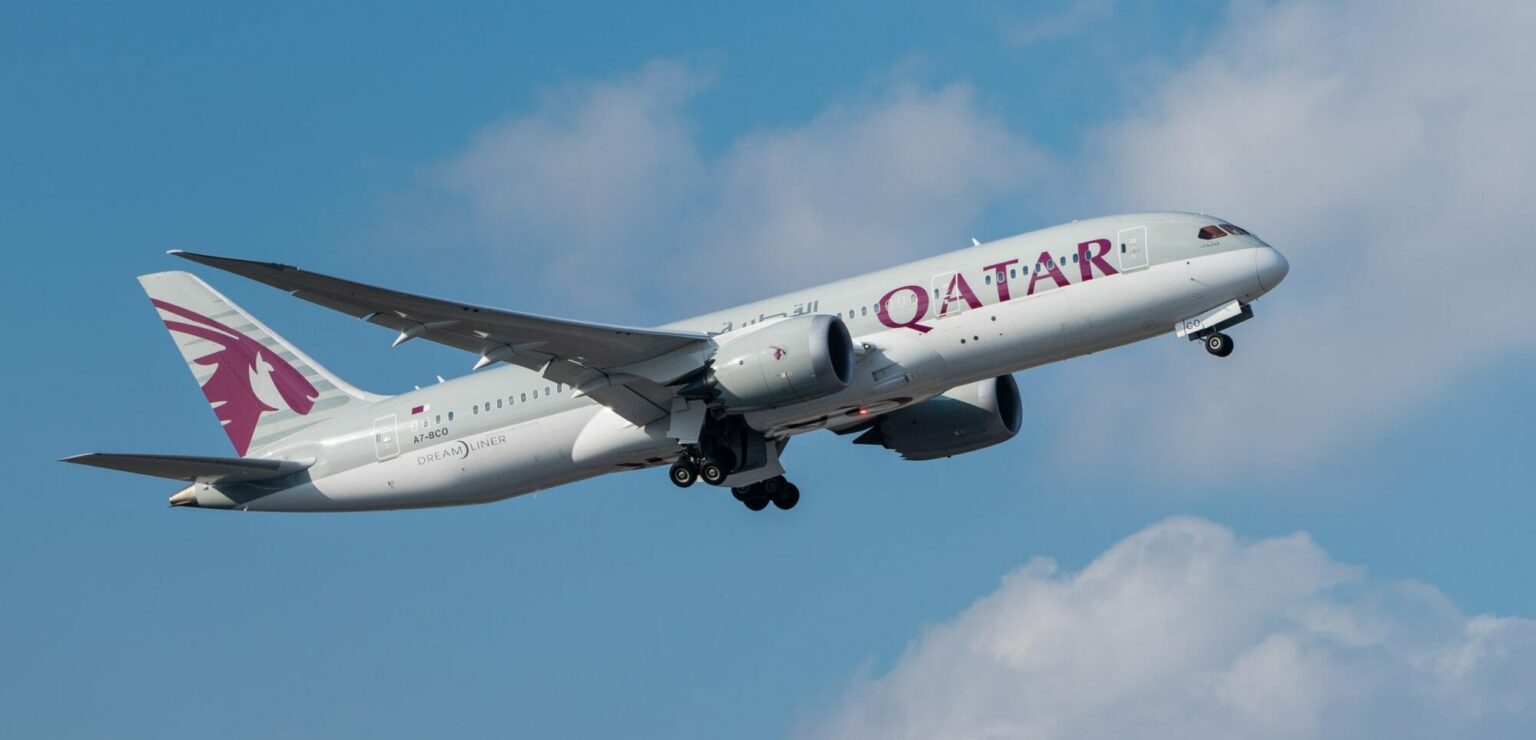Qatar Airways Stockpiles Aircraft Parts to Counter Tariff Challenges
Doha, Qatar
In a bold and strategic move, Qatar Airways has started stockpiling aircraft spare parts to cushion the impact of rising tariffs and potential supply chain disruptions. As global trade tensions rise, the airline is taking proactive steps to secure its operations and ensure passengers continue to enjoy reliable services without sudden fare hikes.
Building Resilience Through Smart Inventory Planning
Speaking recently to Bloomberg TV, Qatar Airways’ new CEO, Badr Mohammed Al-Meer, detailed the airline’s plans to boost its inventory of crucial aircraft components. This decision, he explained, comes amid concerns about new tariffs — particularly those implemented under U.S. policies — and the ripple effects they could have on the global aviation supply chain.
“If I tell you tariffs are not impacting us, I will not be honest with you,” Al-Meer admitted candidly. “Of course, it will have an impact on our supply chain, on our cargo operation.” Despite these pressures, he firmly stated that Qatar Airways remains committed to shielding its customers from increased costs. “We are absorbing the extra costs internally, without passing them on to our passengers,” he added.
This move showcases Qatar Airways’ long-term thinking and dedication to operational resilience. By securing a healthy supply of critical parts now, the airline is preparing to ride out the turbulence that trade barriers and supply chain constraints could bring.
Ensuring Smooth Operations and Service Excellence
The airline’s decision to fortify its spare parts inventory is part of a broader strategy aimed at safeguarding daily operations. Having the necessary components readily available reduces the risk of maintenance delays, unexpected flight cancellations, and customer dissatisfaction.

With a strong focus on operational reliability, Qatar Airways is sending a clear message to the market: it intends to remain a trusted carrier even during challenging economic times.
Passenger demand, especially on Qatar Airways’ U.S. routes, has remained robust despite global uncertainties. According to Al-Meer, this sustained demand has helped the airline maintain steady ticket prices, even as some rivals are struggling with slowing transatlantic traffic and adjusting their earnings forecasts downward.
This resilience highlights the airline’s effective business strategy, superior service, and strong brand loyalty.
Adapting Fleet Strategies for Greater Efficiency
Qatar Airways currently operates a modern and diverse fleet that includes both Boeing and Airbus aircraft. While this diversity allows flexibility in route planning and capacity management, it also introduces additional complexity in sourcing parts and maintaining a high level of technical readiness across different aircraft types.
Recognizing this, Al-Meer hinted at potential changes in the airline’s narrowbody fleet strategy. He suggested that Qatar Airways may focus more heavily on the Airbus A320 family of aircraft, potentially phasing out the leased Boeing 737 jets currently in service.
“We are always looking at the best way to optimize our fleet and operations,” he said. Consolidating around one narrowbody type could lead to simplified maintenance processes, more efficient pilot training programs, and cost savings over the long term.
This realignment would also build on the airline’s recently improved relationship with Airbus. Qatar Airways and Airbus had previously been entangled in a public dispute over surface degradation issues on Airbus A350 jets. However, with that matter now resolved amicably, the two companies have rebuilt a strong working partnership — paving the way for future cooperation.
Navigating a Tough Global Aviation Environment
The aviation industry has been under immense pressure over the past few years, grappling with the aftershocks of the COVID-19 pandemic, labor shortages, and now increasing trade tensions. Airlines around the world are facing shortages of spare parts, delays in receiving new aircraft, and rising operational costs.
Recent industry reports indicate that supply chain bottlenecks have become a major hurdle, affecting everything from aircraft tires and avionics to essential maintenance tools. In this environment, Qatar Airways’ decision to stockpile supplies appears both prudent and necessary.
Experts believe other airlines may soon follow suit, as securing vital parts could become a critical factor for maintaining schedules and service levels in the months ahead.
Qatar Airways, by taking early action, positions itself as a leader ready to weather the storm, ensuring that travelers can continue to rely on its award-winning service standards.
Innovation and Future Growth
While dealing with current challenges, Qatar Airways remains firmly focused on innovation and future growth. The airline recently expanded its global network to include new destinations across Asia, Africa, and Europe, further strengthening its position as one of the world’s leading carriers.
Al-Meer also hinted at exciting developments ahead, suggesting that the airline would continue investing in digital technologies, sustainable aviation initiatives, and premium passenger experiences to stay ahead in an increasingly competitive market.
“We are not just looking at surviving the challenges,” he said. “We are focused on growing, leading, and setting new benchmarks for the industry.”
This forward-looking mindset has long been a hallmark of Qatar Airways, which has consistently won accolades for its service excellence, fleet quality, and operational efficiency.
Conclusion: A Strategic Move for a Sustainable Future
By stockpiling critical aircraft parts now, Qatar Airways is setting a strong foundation for sustainable growth amid global uncertainty. This proactive approach helps shield its operations from external shocks, protects customers from sudden fare increases, and reinforces its reputation as one of the world’s most reliable airlines.
As the aviation sector continues to navigate turbulent skies, Qatar Airways’ strategy offers a powerful example of how smart planning, resilience, and a focus on customer satisfaction can help airlines not just survive — but thrive.
For more information click here



